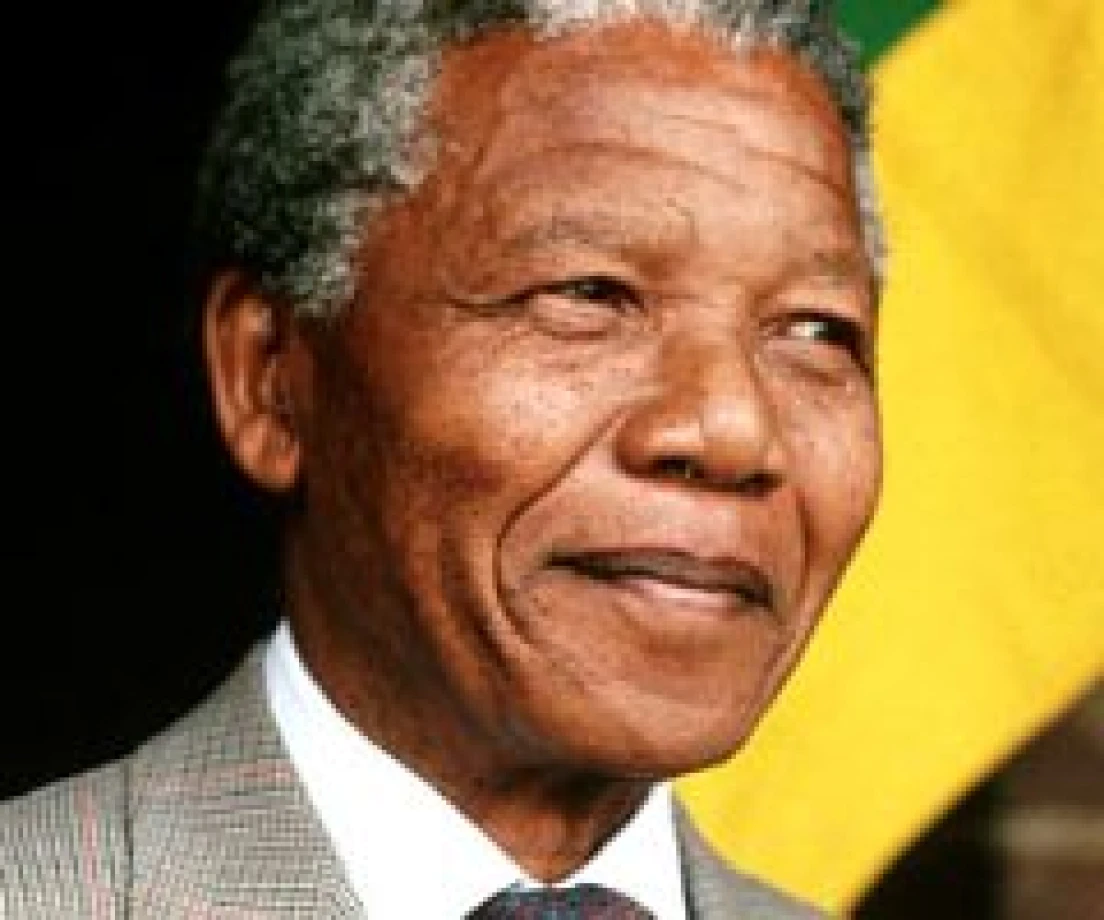Nelson Mandela remembered at St Anne’s Cathedral
A special service to remember the life of Nelson Mandela was held today in St Anne’s Cathedral Belfast.
‘Reflections on the life of Nelson Mandela – Lessons in Peace and Reconciliation’ was jointly organised by the Lord Mayor of Belfast, Councillor Máirtín Ó Muilleoir, the Dean of Belfast, the Very Reverend John Mann, the Chapter of St Anne’s Cathedral and the African and Caribbean Support Organisation NI (ACSONI).
The service consisted of readings from Scripture and hymns and prayers, but also included a significant number of quotations from Mandela himself arranged within six focused sections of the service: “On those who live in darkness and experience violence”, “Freedom”, “Forgiveness”, “International Co–operation”, “Unity and the victory over Apartheid” and finally, “Peace and Reconciliation”.
The Dean gave a short address, the transcript of which is available below.
In addition to the Dean and Lord Mayor, participants included representatives of the Roman Catholic, Methodist and Presbyterian Churches, as well as the Hindu and Bahá’í faiths. Poet Nandi Jola read two of her works, while there were also contributions from the Manukahunney Singers, the Intsika Ka Xhosa South African dance group and Belfast’s Filipino community, as well as local business leaders and members of Belfast City Council’s Youth Forum.
The transcript of The Very Revd John Mann’s address
St Anne’s Cathedral, 1.00 p.m. 14th December 2013. Nelson Mandela’s Service of Reflection.
In the Bible there are at least three pits in which men are confined. In Genesis 37 Joseph is thrown into a pit because his brothers are debating what to do with him. Eventually he is sold to travellers on their way to Egypt. In Daniel chapter six we read of the prophet being cast into the lions’ den, which must have been a pit, because, after his survival of the night with the lions, we are told that he was ‘taken up out of the den’. And from the Gospels, we know that Jesus was held for one night in the house of Caiaphas after his arrest; the prison under the house has been located and it is a pit, having a hole in the ceiling to lower the prisoner into the darkness. I have stood in that pit. It must have been a fearsome place to be held. The process of the confining of prisoners is surely as much to do with psychology as with the perceived need to restrain.
Symbolically, the opening of a cell, the lifting of one out of a pit, the release from the mental torment of confinement, especially solitary confinement, is a powerful expression of renewal. Today, as we consider the death of one who played such a large part in releasing a whole country from the virtual pit into which it had sunk, through the discriminatory effects of the Apartheid regime, we acknowledge also that such renewal is not only something won and held as a trophy of struggle, but a gift to be treasured and protected, with as much fervour as had led to it being achieved in the first place.
In a few moments we shall conclude this service and take with us, into the streets and homes of this City, the sense that one man, Nelson Mandela, contributed hugely to the improvement of the lives of others. Yes, without doubt he did do this, with the support of millions of people, but if this miracle of renewal is to be fully grasped, the will to sustain a sense of the value of each of our lives is paramount. We have heard many powerful words from Mandela this afternoon; let me give you one more sentence that he scribbled in a notebook, we don’t even know when: “We pass through this world but once and opportunities you miss will never be available to you again”. This very simple message is one that concentrates the mind and helps one achieve that valuing of every other person; for the opportunities that come our way are primarily a result of our interaction with others.
That does not mean that it will be easy. Hard decisions have to be taken, and the road is never as straight as one would like, but as all three men drawn up from their pits in the Bible showed, they could use the opportunity that lay before each of them. Joseph sold into slavery was eventually used by God to prevent many people dying from famine; Daniel’s faithfulness to his God was exemplary and an example for others. Ultimately, Jesus showed the way of love; the way of sacrifice, the way of the Cross and drew others to him.
As we reflect on the life of Nelson Mandela today we do so in celebration and thanksgiving, but know too that the work of peace building and reconciliation is still there to be done; the opportunities are before us; the path is there to be continued…
ENDS
